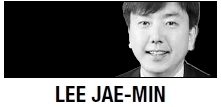 Self-driving cars are destined to be the first seismic change for automobiles since Ford introduced affordable cars in 1908.
Self-driving cars are destined to be the first seismic change for automobiles since Ford introduced affordable cars in 1908.
Granted, automation is already part of driving. Think about all the cruise control, blind-spot monitoring, collision warning and the like.
But what companies are attempting to put on the market in the near future are driverless vehicles, with Volvo estimating that the first fully self-driving cars will be on the road by 2020.
Good for us, basically. Computer-driven or robot-driven cars would mean safer streets. Statistics list human errors as the cause of 90 percent of road accidents.
A recent horrific accident caught on camera on Youngdong Expressway was found to have been caused by a bus driver who had dozed off.
Driverless cars will reduce these human error-related accidents. Perhaps there will also be no more road rage when emotionless computers steer the wheels.
To customers, these cars would mean more time for work and relaxation in the backseat of a car. Given the long-term potential of a new market of automobiles, it is no wonder automakers are finding their future in this development.
Despite the benefits, fully automated cars also come with complex legal and practical issues. By eliminating the human factor from driving, these new automobiles raise new legal questions. If an accident happens, whose fault is it? Is it the responsibility of the manufacturer, the driver or the passenger? Legal liabilities will have to be distributed between automakers and software developers for faulty products, and drivers or passengers for mishandling of the products. Insurance policies will have to go through drastic changes to reflect this.
A more fundamental legal question is how to program the driving software in case of emergencies. When an accident is inevitable and multiple lives are in danger, what should the car be programmed to prioritize? It is question that is far from easy to answer.
On the practical side of things, are people really desperate to give up driving? Imagine the short solitude we enjoy behind the wheel, away from work and intrusion, with music and radio shows. With driverless cars, the driving time will not be downtime, but instead another window for more work with laptops and conference calls. It is like telling children to delegate playing games to someone else so that they can study more. Perceiving driving as pure work seems to be too much of a generalization.
Yet another practical aspect is the reality that driverless cars will not be able to eliminate human driving entirely.
The prevailing concept assumes that a driver or passenger will take over control of the car in certain circumstances such as malfunctions or road emergencies. This means that the driver or passenger will have to be constantly alert even if their two hands are free, just like the auto-pilot function of an airplane where pilots should still stay alert inside the cockpit.
It would be like sitting next to a teenage son who is driving the car for you -- you would be comfortable but concerned. Have your hands free, but not carefree.
So, training and license for drivers will still be needed in the future. Even if fully automated cars are on sale and on the road, it is not likely that people can fully relax and forget about driving.
One other question also begs to be answered: What is the difference between a driverless car and a taxi? You could just as easily catch a cab, or call Uber, and in several minutes, you could sit back and forget about driving until you get to your destination.
Furthermore, in this country there are replacement drivers who can show up in 10 minutes, wherever you are, day and night. With the replacement driver, you can truly forget about driving until you and your car get home, just for $10. It does not seem like driverless cars can beat cabs, Uber cars or replacement drivers. At least, not in the near future.
By Lee Jae-min
Lee Jae-min is a professor of law at Seoul National University. -- Ed.
- Foreign Ministry denounces heightening tensions in Middle East
- [New in Korean] Lee Seo-su's experience opening cafe reflected in her latest novel
- Gold trading volume spikes amid Mideast crisis
- Chinese man behind drug scam targeting teens nabbed in Cambodia
- Seoul envoy for N.K. human rights urges solidarity in Argentina, Mexico
- Yoon, Romanian president to hold summit in S. Korea next week
- S. Korea voices strong regrets over Japanese textbooks distorting wartime history
- [Herald Interview] Lim Yunchan: Chopin album feels like long-awaited eruption
- Discover awarding-winning Korean literature at 'Springing to Life' exhibition
- Seoul Outdoor Library reopens with expansion to Cheonggyecheon







![[KH Explains] Hyundai's full hybrid edge to pay off amid slow transition to pure EVs](http://res.heraldm.com/phpwas/restmb_idxmake.php?idx=644&simg=/content/image/2024/04/18/20240418050645_0.jpg&u=20240419100350)






![[From the Scene] Monks, Buddhists hail return of remains of Buddhas](http://res.heraldm.com/phpwas/restmb_idxmake.php?idx=652&simg=/content/image/2024/04/19/20240419050617_0.jpg&u=20240419175937)

![[KH Explains] Hyundai's full hybrid edge to pay off amid slow transition to pure EVs](http://res.heraldm.com/phpwas/restmb_idxmake.php?idx=652&simg=/content/image/2024/04/18/20240418050645_0.jpg&u=20240419100350)

![[Today’s K-pop] Illit drops debut single remix](http://res.heraldm.com/phpwas/restmb_idxmake.php?idx=642&simg=/content/image/2024/04/19/20240419050612_0.jpg&u=)